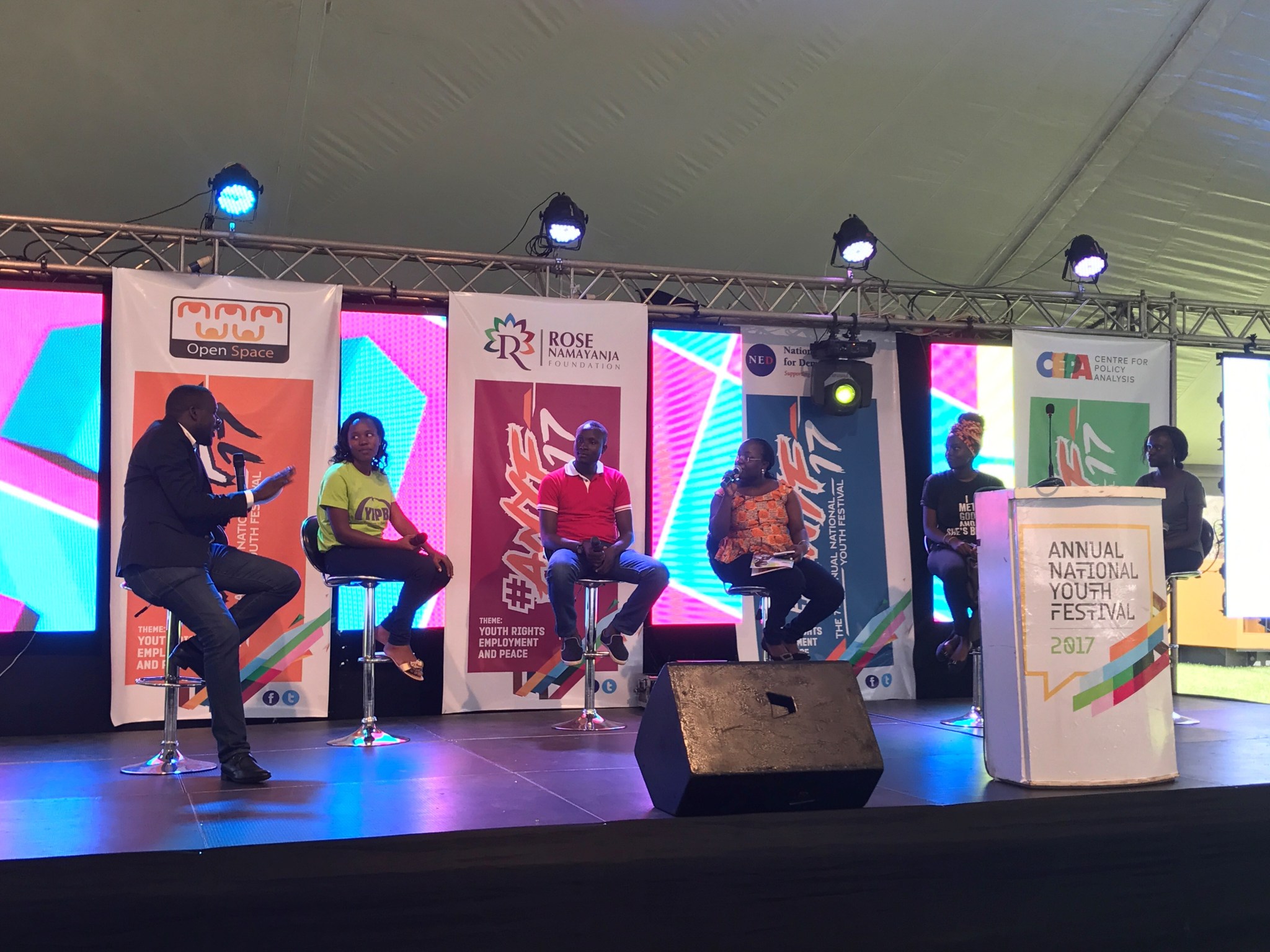
Since June 2017, IRI has conducted a series of activities across Uganda aimed at helping youth to understand and become more engaged in the constitutional review process taking place in the country. In seven districts around the country IRI hosted constitutional literacy forums and advocacy trainings aimed at providing young Ugandans with information about constitutionalism, current issues up for review in the Ugandan constitution, and strategies for lobbying their respective MPs and various stakeholders to ensure that youth voices are a part of Uganda’s anticipated constitutional review process.
IRI’s work has become even more critical and timely in light of recent events surrounding the controversial proposal to amend the constitution in order to lift the age restriction placed on presidential candidates. If passed, the constitution would no longer require presidential candidates to be younger than 75 years old, allowing President Museveni to run for a 6th term in 2021 when he would be 76. This move has been long anticipated, even before President Museveni’s re-election in 2016, and members of the political opposition and civil society immediately came out against it in a campaign dubbed #Togikwatako, a Luganda word that translates to “do not touch the constitution.”
Members of Parliament received instruction to conduct consultations with citizens on the popularity of the bill and present their findings to the parliamentary committee on legal affairs. As Ugandans continue to observe what appears to be an inevitable process leading towards the removal of the age limit, it has been interesting to watch how the review process itself is playing out and the ways in which this will impact future political discourse in the country.
Most notable in the debate around the proposed amendment has been the discussion of whether the constitution should ever be amended. The #Togikwatako campaign implies that the ruling party should not dare to review or amend any section of the constitution, despite there being a number of wider issues due for constitutional review. The current debate around amending the constitution has focused so narrowly on the issue of the age limit at the expense of wider discussions, including important issues such as land reform, reviewing the setup of the electoral commission and the role of special interest group representatives in parliament.
While there is widespread opposition to amending the age limit article of the constitution, political parties have not come out vocally to support the #Togikwatako campaign and do not appear to have a coherent strategy to mobilize citizen sentiment into mass action. Instead, individual politicians from different parties have become the flagbearers of the campaign and seem to have left the parties behind.
Security organs in Uganda have been more openly partisan in crushing dissent and public consultations by opposition members. There has been heavy security presence around parliament, and police arrested Kampala’s mayor on live television in an attempt to stop him from leaving his house to attend an opposition-led meeting to discuss the proposed constitutional amendment bill.
As a further signal of the institutional challenges facing Uganda, the media has failed to build a wider narrative that focuses on the actual process of constitutional review and the role that citizens should play in the review process. Instead, the media has focused on the positions of individual politicians. It is interesting that every institution that could lead a neutral process of dialogue and debate on the constitutional review process has taken a clear position as either for or against the abolishment of the age limit, and has consequently lost the credibility needed to lead a viable and inclusive national dialogue on this contentious issue. The clergy, media personalities, the law society and civil society organizations have all publically taken sides and have been branded as opposition or partisan.
IRI is concluding its current project on the constitutional review process with a national dialogue that will bring together youth from the program’s seven target districts, youth organizations working at the national level, and members of parliament to discuss the ongoing constitutional review process and the proposed constitutional amendment. The Institute hopes to create a neutral platform where young people can safely voice their opinions on the bill and encourage their MPs to follow a path in reviewing the constitution that captures the range of citizen voices on this momentous national issue.
Top